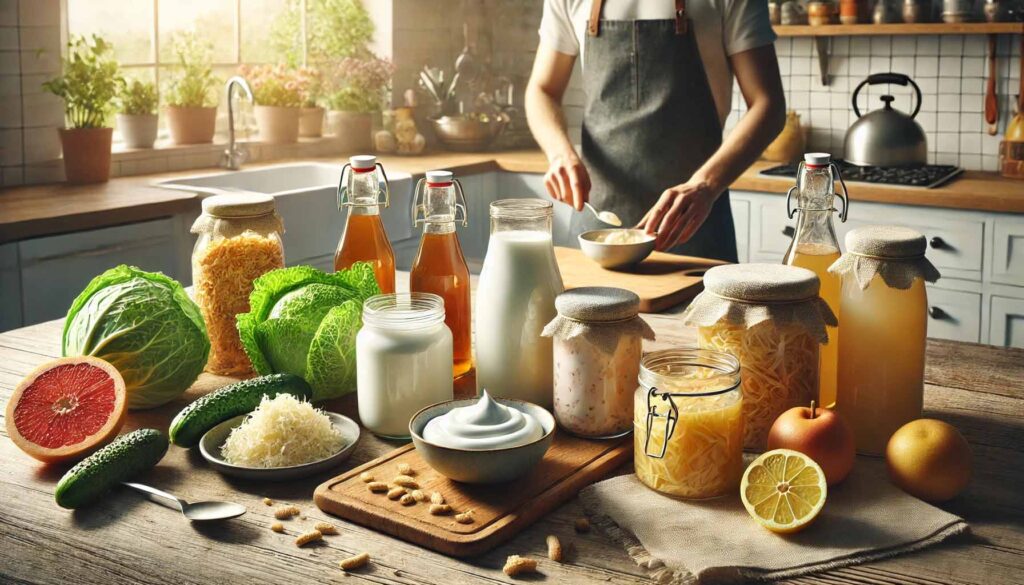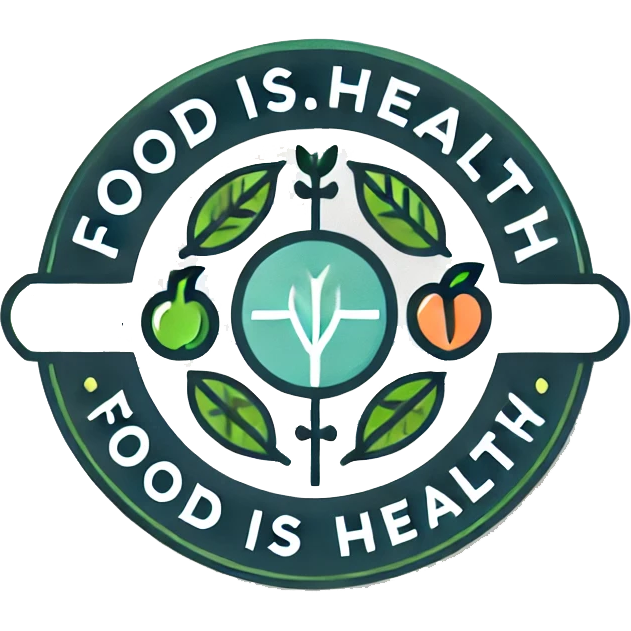Prebiotics are like a power-up for your gut! They play an important role in helping the good bacteria in your digestive system grow and thrive. But what exactly are prebiotics, and how do they support the beneficial gut bacteria in your body? Let’s dive into how this process works, what foods contain prebiotics, and why having a balanced gut is so important for overall health.

What Are Prebiotics?
Prebiotics are a type of fiber that the body can’t digest. Unlike the food you eat that gets broken down and absorbed by your stomach and intestines, prebiotics go through your digestive system unchanged until they reach your colon. Once they’re there, they serve as food for the healthy bacteria, also known as probiotics, that live in your gut.
Beneficial Gut Bacteria: The Key Players
Before we talk about how prebiotics help, it’s important to understand what beneficial gut bacteria are. Your gut is home to trillions of bacteria, some good and some not so good. The good bacteria, or probiotics, play a key role in keeping your body healthy. They help with digestion, boost your immune system, and even influence your mood. Keeping these beneficial bacteria healthy and thriving is crucial for maintaining a balanced gut.
How Prebiotics Support Gut Health
Now that you know what prebiotics are and why good bacteria are so important, let’s look at how prebiotics help these bacteria grow and thrive.
- Prebiotics Feed Good Bacteria Prebiotics serve as fuel for the beneficial bacteria in your gut. These bacteria, including well-known strains like Lactobacillus and Bifidobacterium, feed on prebiotics through a process called fermentation. This fermentation process helps the bacteria grow, multiply, and outcompete harmful bacteria. By feeding the good bacteria, prebiotics create an environment where beneficial bacteria can flourish.
- Increase in Short-Chain Fatty Acids (SCFAs) When good bacteria ferment prebiotics, they produce short-chain fatty acids (SCFAs), such as acetate, butyrate, and propionate. These SCFAs are incredibly beneficial to your gut and overall health. They help lower inflammation in the gut, strengthen the lining of your intestines, and may even help prevent diseases like colorectal cancer. By promoting the production of SCFAs, prebiotics make your gut a healthier place.
- Crowd Out Harmful Bacteria A balanced gut is one where the good bacteria far outnumber the bad. When harmful bacteria overgrow, it can lead to gut problems like bloating, diarrhea, and even more serious health issues. Prebiotics help maintain this balance by feeding the good bacteria, allowing them to multiply and prevent harmful bacteria from taking over.
- Boost Immune Function Your gut is closely linked to your immune system. A healthy gut means a stronger immune system, which helps your body fight off infections and diseases. Prebiotics play a role in this by supporting the growth of good bacteria, which in turn boosts the immune system. Some studies even suggest that prebiotics may reduce the risk of infections by promoting better gut health.
Prebiotic Foods: Where Can You Find Them?
You might be wondering where to find these prebiotics in your diet. Luckily, prebiotics are naturally found in many common foods, especially those rich in fiber. Here are some of the best sources:
- Garlic: Not only does garlic add flavor to your dishes, but it’s also a great source of prebiotics.
- Onions: Similar to garlic, onions contain a type of prebiotic fiber called inulin, which supports gut health.
- Bananas: Green, unripe bananas are packed with resistant starch, a type of prebiotic.
- Oats: A breakfast staple, oats are another excellent source of prebiotics.
- Asparagus: This vegetable contains inulin, which helps feed the good bacteria in your gut.
- Apples: Apples are rich in pectin, a type of prebiotic fiber that has been shown to boost gut bacteria.
- Chicory Root: Often added to foods and drinks as a fiber supplement, chicory root is one of the richest sources of prebiotics.
Adding these foods to your diet can give your gut bacteria the boost they need to keep you healthy.
The Benefits of a Balanced Gut
So, why is it so important to keep your gut balanced? The health of your gut influences many different areas of your body. Here are some of the main benefits of supporting the growth of beneficial bacteria with prebiotics:
- Better Digestion: When your gut bacteria are thriving, digestion becomes smoother. You’ll be less likely to experience issues like bloating, constipation, and diarrhea.
- Improved Mood and Mental Health: Did you know your gut and brain are connected? A healthy gut can positively impact your mood, reduce anxiety, and even help manage stress.
- Enhanced Immune System: With a stronger gut comes a stronger immune system. Prebiotics help maintain the balance of bacteria that your body needs to fight off infections.
- Weight Management: Some studies have shown that having a healthy balance of gut bacteria can help with weight management. Prebiotics may reduce cravings and promote feelings of fullness, which can prevent overeating.
Prebiotics vs. Probiotics: What’s the Difference?
You’ve probably heard of probiotics, the beneficial bacteria found in foods like yogurt and supplements. So how do they differ from prebiotics? Simply put, probiotics are the good bacteria, while prebiotics are the food that helps them grow. Both work together to create a healthy gut environment. Without prebiotics, the probiotics wouldn’t have the fuel they need to thrive. Including both in your diet can maximize the benefits for your digestive health.
Conclusion
Prebiotics are an essential part of keeping your gut healthy. By feeding the beneficial bacteria in your digestive system, prebiotics support better digestion, a stronger immune system, and overall well-being. Adding prebiotic-rich foods like garlic, onions, and oats to your diet can help your gut bacteria thrive, leading to a happier, healthier you.
Whether you’re looking to improve digestion or boost your immune system, focusing on prebiotics is a great place to start. They work hand-in-hand with probiotics to create the perfect environment for good gut bacteria to flourish. So, the next time you enjoy a bowl of oatmeal or slice up some garlic, know that you’re not just feeding yourself—you’re feeding the good bacteria in your gut too!
Make sure to check out more articles in our News & Views section. Feel free to reach out any time to collaborate with Food Is Health on projects which help people heal through natural food & nutrition.
Organic vs Conventional Food | Food Preservatives & Additives | Anti-Inflammatory Diets | Gut Health & Probiotics | Plant-Based Diets | Detox Diets & Cleanses | Food Allergies & Sensitivities Functional Foods | Sustainable Eating & Food Waste | Ag Related Topics | Popular Topics
